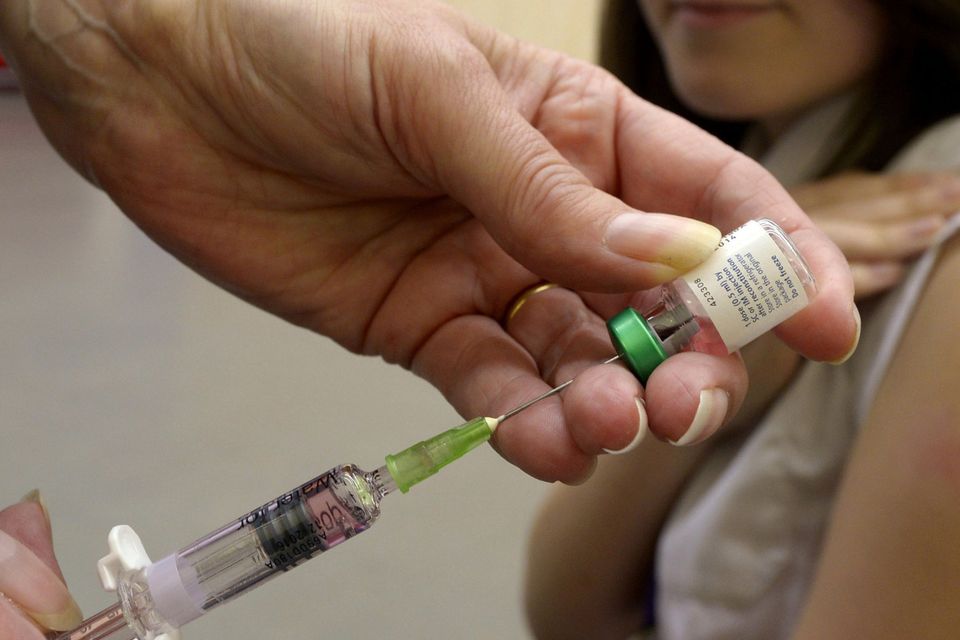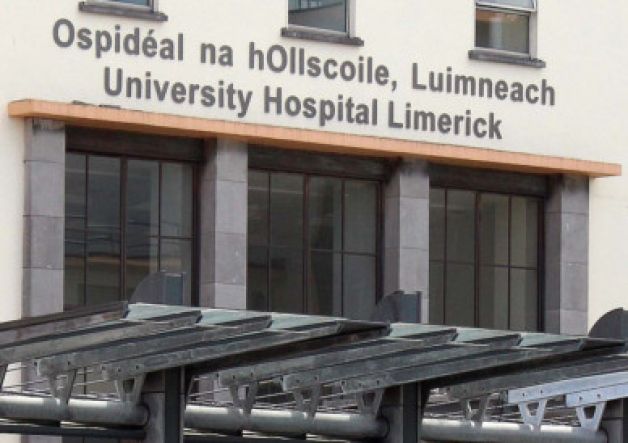HSE confirm measles case in Ireland amid 'ongoing large outbreaks' in Europe
HSE warn those who may have been exposed to virus
Health officials warn the public to check they are fully immunised against measles
The HSE have confirmed a case of measles in Limerick and are warning those who may have been exposed to the virus that they may be in danger of getting infected.
The warning comes amid "ongoing large outbreaks" in Europe.
More than 120 cases of measles have now been confirmed in outbreaks affecting five areas of England, while those travelling to Romania, Italy and Germany without receiving two doses of the MMR vaccine are particularly at risk.
Measles is an extremely contagious airborne infection that can be passed on through physical contact with someone who is infected or when someone who has measles sneezes of coughs in your vicinity.
A spokesperson for the HSE Department of Public Health in Limerick told Independent.ie: "As a precaution the HSE is writing to all patients identified as being at risk of exposure advising them that they may be at risk of infection."
They have warned that there was a risk of exposure to measles at Shannondoc in Dooradolye on January 4 between 8.40pm and 11.50pm and also on January 7 between 1.30pm and 4pm.
University Hospital Limerick
There was also an exposure risk at Zone A in the Emergency Department at University Hospital Limerick on January 7 between 2pm and 12.30am and also on January 9 during the hours of 11am and 1pm.
"Anyone who has been exposed and is not immune to measles (either through natural infection or MMR vaccination) may develop measles up to three weeks following date of exposure.
"Measles is highly contagious and is spread easily. The time between exposure to measles and developing the rash is usually 14 days (range 7-21 days).
"People are infectious from 4 days before rash starts until 4 days after," the HSE spokesman said.
Some of the complications caused by measles include ear infections, a severe cough and breathing difficulties, viral and bacterial infections (such as pneumonia) and eye infections.
Less than one in 1,000 measles cases result in more serious issues involving the nervous system, such as inflammation of the brain, a quarter of those can result in brain damage.
Being infected with measles during pregnancy can also result in miscarriage or a premature labour.
It is also particularly dangerous for infants aged under 12 months, people with weakened immune systems and anyone who is malnourished.
The symptoms of measles include: high fever, cough, runny nose, red eyes, vomiting, diarrhoea, stomach cramps and a rash that starts on the head and spreads down the body - this usually begins after the illness initially begins and consists of flat red and brown blotches that blend into each other, this lasts around four to seven days.
The HSE is urging anyone with measles symptoms to:
Experts also recommend that the best way to protect against measles is to get the Measles-Mumps-Rubella (MMR) vaccine, all children should get their first dose of this at 12 months and the second when they are aged 4-5 years. If your child has missed theirs, the HSE advises that you can contact your GP to get the age appropriate dose.
People most at risk of catching measles are those who have not received their full MMR vaccine or those with weakened immune systems.
For more information please visit here.
Outbreaks in Europe
Meanwhile, more than 120 cases of measles have now been confirmed in outbreaks affecting five areas of England.
Public Health England (PHE) said the current cases are linked to "ongoing large outbreaks" in Europe.
The most recent updates show that, as of January 9, West Yorkshire had 34 confirmed cases, Cheshire and Liverpool had 29, there were 32 in the West Midlands, 20 in Surrey and seven in Greater Manchester.
The health body previously warned that those who recently travelled or were going to travel to Romania, Italy and Germany without receiving two doses of the MMR vaccine are particularly at risk.
Measles is a highly infectious viral disease which typically lasts up to 10 days and begins with cold-like symptoms and a measles rash. It can lead to serious complications, including pneumonia.
PHE said the overall risk of measles is low among the population, as the UK achieved World Health Organisation (WHO) elimination status in 2016, alongside Denmark and Spain.
This means the number of cases in the UK across a period of at least three years was low enough to prevent the disease spreading among the general population.
The MMR vaccine is a combined inoculation which protects against measles, mumps and rubella and is available to all adults and children who have not completed the course.
The full course requires two doses and anyone who is unsure of their vaccination status is encouraged to check with their GP.
Dr Mary Ramsay, head of immunisation at PHE, said: "This serves as an important reminder for parents to take up the offer of MMR vaccination for their children at one year of age and as a pre-school booster at three years and four months of age.
"Children and young adults who missed out on their MMR vaccine in the past or are unsure if they had two doses should contact their GP practice to catch up.
"We'd also encourage people to ensure they are up to date with their MMR vaccine before travelling to countries with ongoing measles outbreaks."
She added: "The UK recently achieved WHO measles elimination status and so the overall risk of measles to the UK population is low, however due to ongoing measles outbreaks in Europe, we will continue to see cases in unimmunised individuals and limited onward spread can occur in communities with low MMR coverage and in age groups with very close mixing."
PHE said local health protection teams were working with councils and the NHS to raise awareness among communities and health professionals.
The NHS advises anyone who suspects they, or their child, might have measles to contact their GP.
Join the Irish Independent WhatsApp channel
Stay up to date with all the latest news















